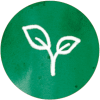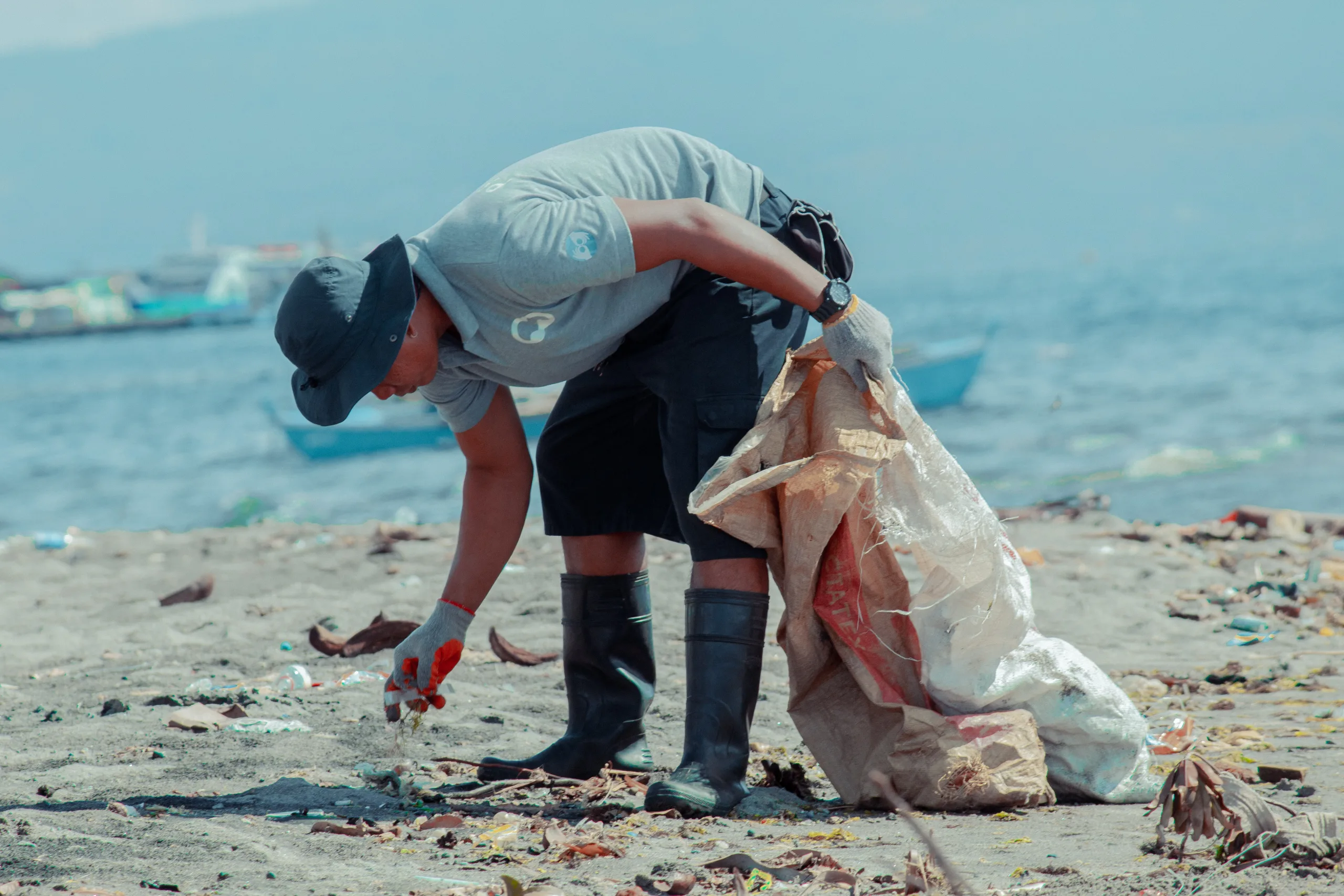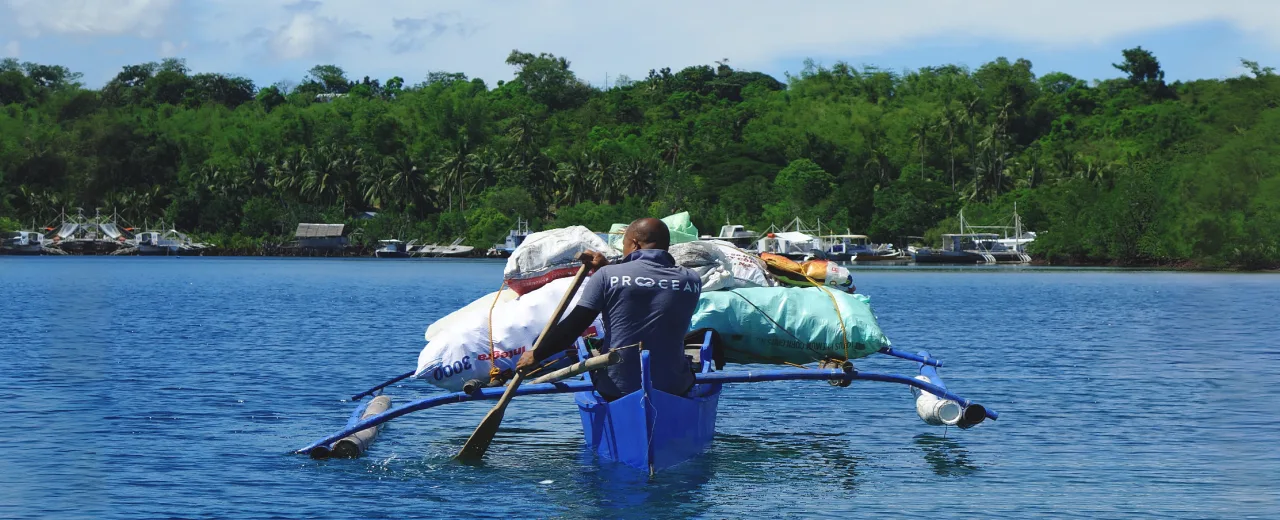 Clean Oceans - with every opened door
Clean Oceans - with every opened door
Protecting the biodiverse ecosystems of Negros from ocean plastic
Very early in the morning, before the sun rises, Marvin, 28, gets up and walks to the beach. He loves this moment of silence and freshness. The air is still pleasantly cool and yet already heralds the coming tropical day. Marvin doesn't have far to go to the ocean. He glides quietly into the smooth, blue water in his boat. This is his morning ritual. Marvin goes fishing, even before the strenuous work. He takes his small boat out into the bay and often dives several metres deep. The species-rich waters in the south of Negros Island in the Philippines have been feeding the coastal inhabitants since time immemorial. Countless fish and other creatures cavort on the coral reefs and in the mangroves. The handful of fish that Marvin catches every day are an important addition to his family's daily diet. His admiration for the oceans and their inhabitants is evident every day. He is grateful for this beautiful paradise right on his doorstep, which provides a livelihood for his family. To actively contribute to the protection of the oceans, Marvin has been working as an environmentalist since the beginning of 2022, cleaning beaches and mangroves of plastic waste. It is a way for him to give something back and he is proud of every piece of waste he collects.
Necessity
Plastic-free ecosystems on Negros - for healthy oceans
Activity
Collect and recycle ocean plastic from beaches and mangroves with fair jobs and awareness raising
Countable effort
Number of ocean plastics collected in kilogram
Result
Protected ecosystems on Negros through clean beaches and mangroves, as well as teaching sustainable action
Systemic effect
Less waste in water and coastal habitats leads to more species protection and a better quality of life for local residents; a more conscious approach to local ecosystems is established
Background
The Philippines are one of the 17 megadiversity countries with extremely high animal and plant biodiversity (Biodiversity a-z & UN environment programme, 2020). To protect this wonderful ecosystem, Pro Ocean is in action, because every minute more than a truckload of plastic waste enters the oceans (Plastic Atlas, 2019). This causes different problems. Many marine animals get caught in old fishing nets or eat plastic (NABU, 2022). The temporal aspect of ocean plastic is also important. The longer the plastic is in the environment, the greater the chance that it will become a habitat for animals and plants.Due to the more than 7,000 islands in the archipelago, the majority of the Philippines’ population lives near the approximately 36,000 km long coastline. In addition, there are over 4,800 rivers through which waste enters the sea. At the same time, many people cannot afford products for their daily needs in large quantities, which is why they resort to micro-packaging. According to the study “Plastic Pollution” (Ritchie H. & Rose M., 2022), this circumstance means that plastic waste has a 7.17 percent chance of ending up in the oceans. As a result, the Philippines ranked a dismal first in this category in 2019, with about 356,370 tonnes of plastic waste entering the oceans (about 35% of the total). With a value of 0.26%, Germany is far behind in this statistic, but has one of the highest per capita consumption of plastic. Each German produces an average of 0.46 kg of plastic waste per day (Philippines: 0.07 kg pc). These enormous quantities make Germany the world’s largest exporter of plastic waste (Fernandez, F., 2023).In order to make the best possible use of waste and strengthen local value creation, innovative recycling solutions are being developed with local partners. An environmental education project for primary school pupils completes the holistic approach.
The good deed
Each door that is opened allows 1 kg of ocean plastic to be collected and recycled in the best possible way. Ocean plastic is a man-made problem and can therefore only be solved with and by the people. Therefore, a participatory approach is taken and the workers on Negros are employed on a permanent basis, thus providing them with a secure and fair income. Because of the permanent employment, there is no danger that the collectors only collect in places with a lot of waste. They get paid even if they only collect a handful of cigarette butts on a beach, because cigarette butts are very harmful to the environment. Through your good deed today, more than 35 different beaches and mangrove forests will be cleaned of plastic and other waste.

About the Philippines
Manila
Capital
115,559,009
Number of inhabitants
3,498.5
Gross domestic product per capita per year
0,699
Human Development Index
75 % of the world's coral species are found off the coasts of the Philippines, whose capital Manila is named after a mangrove with white flowers.
About the organization and further information
Association
Life e.V.
Website
Further information and source
- NABU 2022. Plastikmüll und seine Folgen.
- Bergmann, M. et al., 2022. Plastic pollution in the Arctic. nature reviews earth & environment 3, Nature Portfolio, London, Vereinigtes Königreich.
- Heather, A. et al, 2022. Discovery and quantification of plastic particle pollution in human blood. Environment International Vol. 163, Elsevier, Amsterdam, Niederlande.
- Meijer, L.J.J. et al, 2021. More than 1000 rivers account for 80% of global riverine plastic emissions into the ocean. Science Advances Vol. 7, Issue 18, American Association for the Advancement of Science, Washington DC, USA.
- Fernandez, H.A. et al., 2020. Why plastic-clogged Philippines must face up to dearth of waste disposal and recycling. Eco-Business, Singapur.




